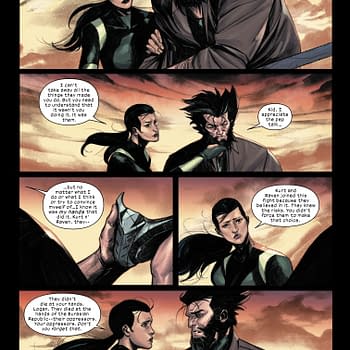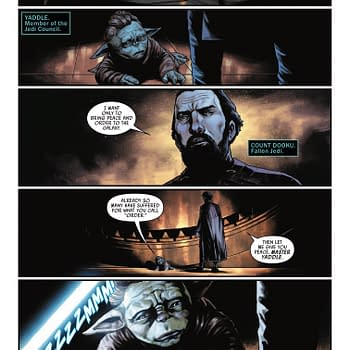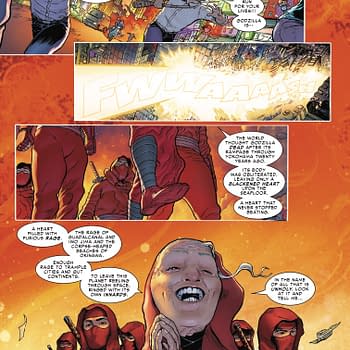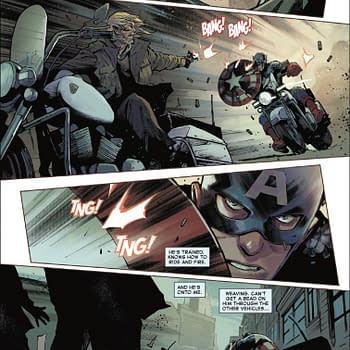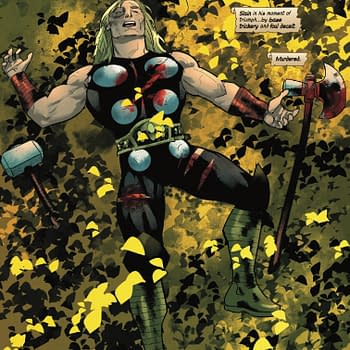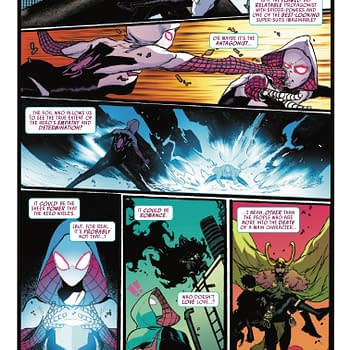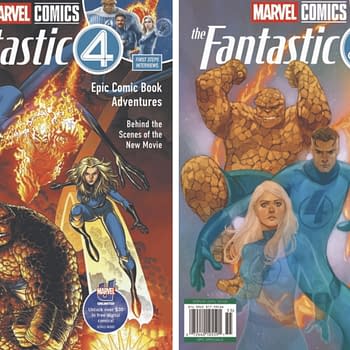Posted in: Comics | Tagged: creator's rights, hiveworks, tapas, webcomics
Webcomics Publisher Hiveworks Weighs In On Tapas "Right To First Refusal" Controversy
Earlier today, Bleeding Cool reported on changes to the terms of services for Tapas, the webcomic syndicate formerly known as Taptastic, which sparked what the company called a "tweetstorm" of criticism on social media. The clause that caused the uproar:
Right of First Refusal
- If user desires to sell, license, exercise or otherwise dispose of, indirectly or directly, any rights or any interest in any content posted on the Platform (the "Offered Right"), then the user shall give written notice to Tapas Media of such desire. Commencing upon Tapas Media's receipt of such notice there shall be a 30 day period in which user will negotiate in good faith with Tapas Media for Tapas Media's acquisition of such offered rights. If by the end of 30 days no agreement has been reached or if at anytime Tapas Media declines interests in the offered rights, then the user shall be free to negotiate elsewhere with respect to such offered Right.
Later in the day, Tapas provided Bleeding Cool with a statement clarifying their intentions, saying in part:
The purpose of the Right of First Refusal is not to take any rights away or steal your content. The purpose is to help you. We've witnessed multiple creators on Tapas accept unfair, uncompetitive deals and sign away their rights for far less than their work is worth. Creators who should have been paid 10x what they were offered agreeing to terrible deals because they either did not know their market value or did not have any competing offers.
And then later still, the company reversed its decision and removed the Right of First Refusal clause from the terms of service, issuing another statement which said in part:
We've always maintained that creators retain 100% ownership when self-publishing with us, and our goal with the introduction of The Right of First Refusal clause was to give independent creators more leverage when entering into negotiations with other publishers.
It was a hectic day for the webcomics industry and the comics community at large, and now another webcomic publisher has weighed in with a statement on the controversy. Hiveworks Comics is "a creator-owned comics and graphic novel publisher focused on free to read webcomics," who publish such comics as SMBC, Namesake, Check, Please!, and Paranatural. Hiveworks says that all of their contracts are "creator owned," and that the company itself is run by webcomic artists and writers. Here, in full, is Hiveworks' statement, which will be published later tonight on their website:
A Statement On Creator-Owned Webcomics
On May 18, our team and creators were made aware of changes over the last month to the terms of service for Tapas Media, a platform for webcomic creators. Within these changes, Tapas Media's terms for using and posting content on their platform were updated to give them what at face value appeared to be a perpetual and blanket right of first refusal.Even though Tapas later rolled back the changes, the terms originally stipulated that comic creators on the platform could only sign a deal with another publisher after a 30-day period and "good faith negotiation" with Tapas. This applied to all series appearing on the platform.
Hiveworks reviewed these terms from the perspective of both publisher and comic creator. We found them poorly communicated and overreaching. We were hesitant to support our currently transitioning comics remaining on the service when it might compromise their rights.
Many creators contacted us to the same effect. We worked with legal counsel, contacted Tapas, and coordinated our creators who were impacted to remove their work from the site and protect it from any possible claims.
Despite Tapas Media removing the clause from its terms, what it may say about the future of the platform is troubling. The question "should the platform or social network you use to build your work own it?" has an immediate, negative answer from most creators. But when external, larger business comes into the conversation that answer may waver.
Webcomic publishing has never been easy, and running your webcomic through a platform, mirroring, or running solo is not for the faint of heart. It is built on a foundation of indie publishing, self-promotion, and grit. Creators have had their content stolen and reposted, and they struggle to monetize their online work. Those who succeed and build large audiences regularly have their personal details doxxed and their privacy threatened. Because of these things, the community around webcomics and its creators put an incredible value on trust and ownership.
In its response, Tapas explained that the term on first refusal was solely a creator's resource. It said the intent was to provide a bargaining chip for creators and a suite of resources for negotiating.
Anyone familiar with entertainment contracts knows a Right to First Refusal has less to do with what a company can do for you, and has much more to do with what you give to that company. The Right of First Refusal gives a company time to counter professional deals you've lined up for yourself. Your time and your rights are yours to negotiate, and a terms of service should not claim them from you in exchange for resources they will not guarantee.
Webcomic artists have been and are frequently subject to unfair contracts. Many creators can tell you how they lost their rights to their IP entirely due to a bad contract, a hungry new media venture or just a spiteful representative.
In its statement, Tapas told creators they were looking out for their best interests. The right to first refusal would serve as a protection against unfair or disadvantageous agreements for the creators. But what kind of protection is automatic and mandatory? A professional relationship, which these terms try to establish, should not built on an assumption of ignorance where one party must be controlled for their own good.
Tapas Media was right to roll back its terms, and they're smart to apologize. A lot of that credit goes to some of their team's direct relationship with comic creators, and their quick response. That said, they have a long way to go to regain what trust was lost.
The questions remain: do the tools you use to build up your work own a part of that creation? Do they have a say?






